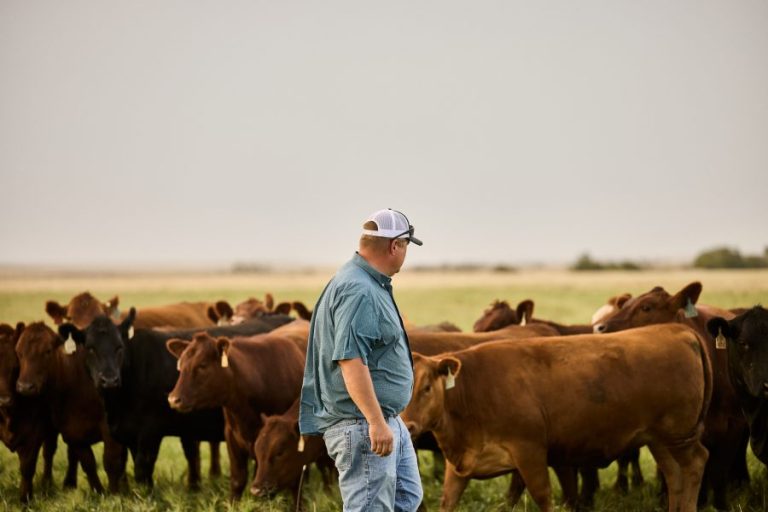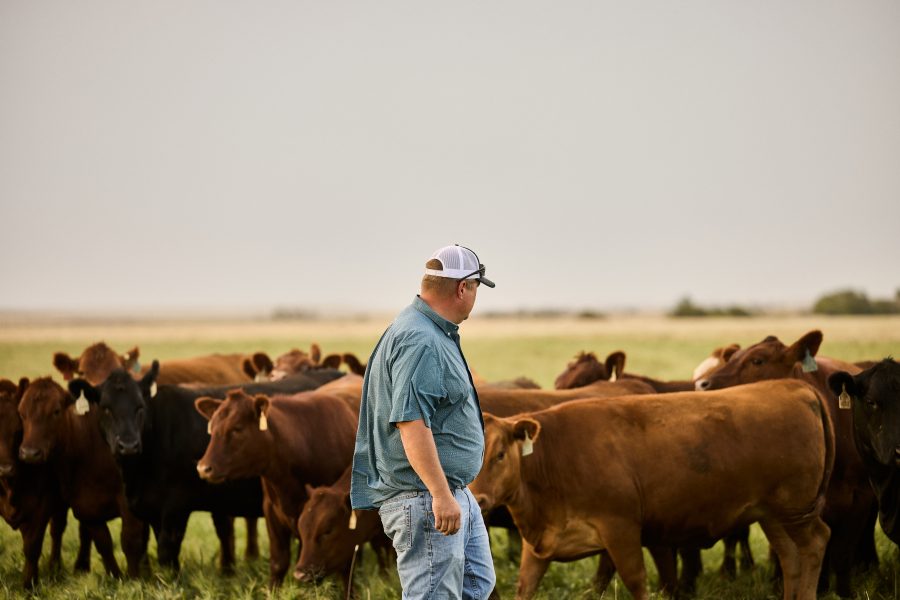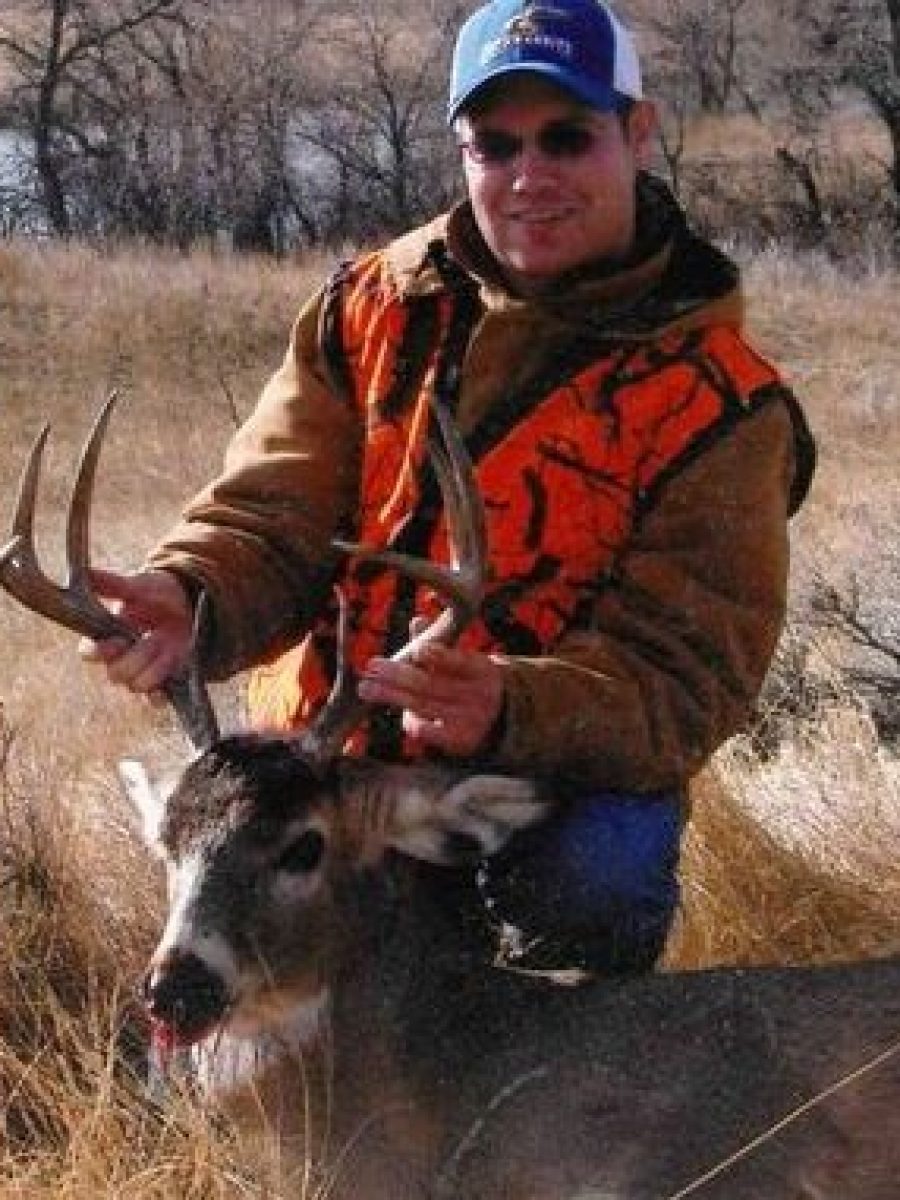PIERRE, S.D. – Ranchers lodged accusations against a state board Thursday at the Capitol in Pierre, and a legislative committee advanced a bill to change the way the board members are selected.
The bill would shift the power of appointing members of the South Dakota Brand Board from the governor to a direct election by brand owners.
Under the current system, the governor appoints all five members of the Brand Board. It’s responsible for registering and regulating livestock brands in South Dakota, and ensuring new brands do not conflict with existing registered brands in the state.
Ranchers say they’re waiting more than six months to get a livestock brand registered with the state board, while the wait is about a week in neighboring North Dakota and Nebraska. And multiple South Dakota ranchers testified about being mistreated by the current Brand Board, often during the brand inspection process.
Salebarn owner Baxter Anders said he has been mistreated by brand inspectors multiple times. He said, “I filed several complaints, but nothing came of it.”
One brand inspector even assaulted one of his employees, Anders alleged.
“He knocks a woman employee of mine down, knocks her to the ground, and makes sure that ‘she knows her place,’” Anders said. He said the inspector was eventually fired.
Brand Board Director Debbie Trapp attended the hearing and testified but did not address the assault allegation.
In an opening statement to the committee, the bill’s prime sponsor, Rep. Liz May, R-Kyle, argued the Brand Board belongs to the South Dakotans who need brands, not to the governor. She said a direct election by brand owners would ensure the board’s decisions are reflective of the needs and concerns of those who rely on it.
“My phone has not quit ringing for over a year over this particular issue,” May said.
Besides changing the selection process for board members, the bill would change the board from five members to seven from different regions of the state, elected by brand owners from that region for three-year terms. Candidates would have to be at least 18 years old, own a brand, and make the majority of their income from the livestock business.
The bill is supported by the South Dakota Stockgrowers Association, which feels the current system leaves ranchers’ interests underrepresented.
“What this is about, at the end of the day, is improved accountability,” said Jeremiah Murphy, a lobbyist for the association.
Opponents of the bill acknowledged there are problems to be fixed within the Brand Board, but they argued the board is making improvements.
“The board is working,” said Secretary of Agriculture and Natural Resources Hunter Roberts. “I’m confident, right now, that they are working on those issues.”
Elections do not guarantee improvement, according to bill opponent Eric Jennings, president of the South Dakota Cattlemen’s Association (SDCA). The South Dakota Farm Bureau also opposed the bill.
Brand Board Director Trapp criticized a provision in the bill that would require the board to bear the costs of elections. She also said the Brand Board does not currently know if a brand owner is 18, nor who lives in the state.
Opponents moved to defeat the bill, but that motion failed 6-7.
Proponents countered, citing that amendments to fix holes in the bill can still be made. Their motion to bring the bill to the full House of Representatives for a vote passed 7-6.
Electronic ID bill
Hot iron brands are not the only form of identification used in South Dakota’s ranching industry and also not without controversy.
A resolution from Rep. May would have urged the federal government not to impose mandatory electronic identification requirements — such as microchipped livestock ear tags — on livestock producers. The resolution, which the committee rejected by tabling it on a 7-6 vote, argued that such mandates would be an unnecessary and costly burden for farmers and ranchers.
Some South Dakota ranchers who testified have concerns with hacking and a loss of freedom.
“China makes a lot of these chips,” said Belvidere rancher Kenny Fox. “I don’t think we should be supporting the Chinese communist party.”
Florence Thompson, a lobbyist with a group called Citizens for Liberty, alleged that electronic livestock identification is part of a global plot.
“It’s not just to manage the cattle, it’s to manage the ranchers,” Thompson said. “We can’t allow the government to have this kind of control over our lives.”
Other testimony from ranchers argued that electronic identification improves disease prevention and animal health tracking.
Operations that have already implemented electronic identification systems for livestock have done so without significant problems, according to SDCA President Eric Jennings. He said electronic livestock identification is becoming popular as producers, shippers and packers continue to see the technology improve accuracy, productivity and efficiency.












